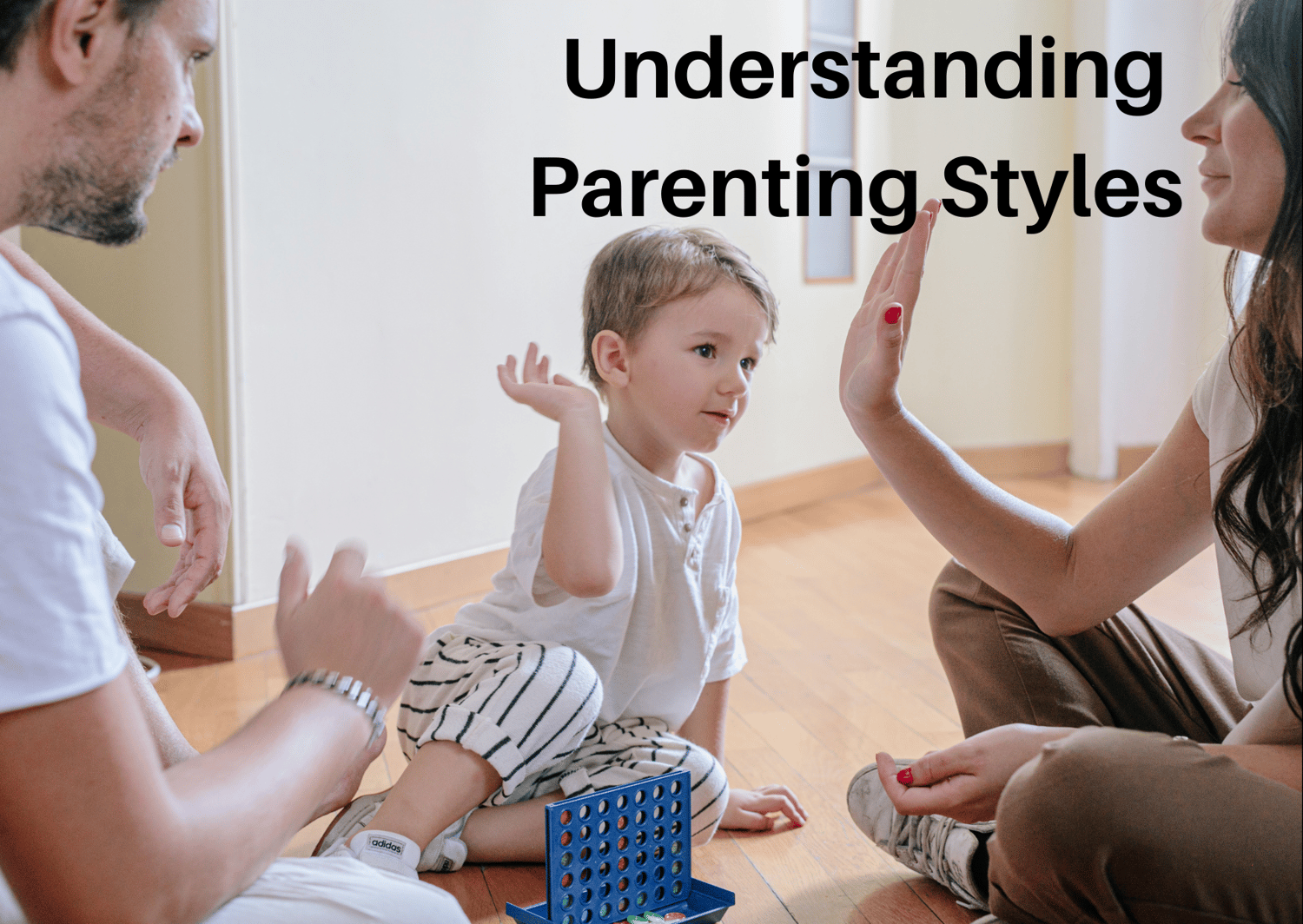Parenting style is defined as a consolidation of parents’ strategies, attitudes and behaviors toward children and how they bring them up. They are a depiction of patterns of how parents counter the demands of their children, practice specific behaviors and how all of this and more shapes their relationship with their children.
Knowingly or unknowingly, you might be using one or more of these parenting styles in your life with your children.
There is no one size fits all philosophy here. There can never be a blanket approach towards choosing our parenting style. Though there’s no such thing as good or bad parenting , it's important to understand that you can design your own style with a mix and match keeping in mind your child’s interest on a short term as well as long term basis.
Your parenting style is not free from consequences. It is important to understand the different parenting styles so that we can nurture our kids in the best possible way. Being connected , respectful, conscious, mindful and compassionate should be your foundation. Communication styles, attachment styles need to evolve and help both the parent and the child to form a healthy, safe and nurturing relationship.
1] Authoritative Parenting
Do you often put a lot of effort into developing and maintaining a healthy relationship with your children, involve them in family discussions of their relevance and ask their opinion while making decisions about them? If yes then you are an authoritative parent.
Authoritative parenting is striking a balance between having rules & consequences of not following them laid out for your children and explaining to them why these rules are made for their well being. Authoritative parents take the feelings of their children into consideration before making any decisions about them while also making it clear that the adults are ultimately in charge. Authoritative parents put efforts towards creating a strong bond with their children and a conducive environment for them while they also maintain firm boundaries and are consistent with the rules. These type of parents always keep room for communication open which keeps their child connected to them and helps parents engage with the children in a positive way. Authoritative parenting is a healthy way of parenting children.
2] Authoritarian Parenting
Do you often answer your children with "Because I said so" when they ask you the reason behind doing something you have asked them to? If the answer is yes, then you might be using the Authoritarian style of parenting with your children.
Authoritarian style of parenting might discourage your children to ask questions and reason certain behaviors and actions and encourage them to follow commands blindly. This also sends out a loud message to them that their opinions do not matter. This type of parenting is often reduced to discipline, rules, strictness with the child in each and every aspect of life silencing the voice and the thinking of the child as the child is entirely influenced and controlled by the parent. The child is often grounded and guarded from having fun.
This type of parenting creates a block in healthy communication through its rigid boundaries set by parents. There is a huge scope for disconnectedness and erosion of a child’s self esteem. Punishments,anger , frustration, yelling , spanking, criticism, threatening kids to rip them off the things they enjoy are some of the tools used by parents. Of course parents believe that all that they are doing is for the good of the child and cannot control the damage done.
3] Attachment Parenting
If your child is the center of your life and most of your time is dedicated to them, then you may be using the attachment style of parenting with your children.
This type of parenting style is child centric where parents dedicate their life to the child. These parents are often there for their children but most of the time only for the physical and tangible aspects of raising the child rather than being emotionally involved as well. As these parents totally dedicate their life to their children it can get exhausting and can totally consume the parents. They can become emotionally abusive in the future where they feel they gave their entire time to their children, sacrificed their life for them and that their children now owe it to them. This parenting style definitely demands a lot from the parent and is exhaustive. At the same time it makes the child over dependant on the parent.
4] Permissive Parenting
Are you more like a friend to your child than a parent? Do you believe that ‘kids will be kids’ and they will eventually figure things out? If yes then you are a permissive parent. They usually come across and ‘non-strict’ parents, they are very loving and warm but the children might end up believing they do not have any parental authority and they can do what they want.
Permissive parenting style inclines towards being a lenient one and can also be seen as a parenting style with lack of efforts towards abstaining children from making poor choices. Children brought up with permissive parenting might fall behind in taking important matters seriously and might exhibit resistance towards rules and authority.
Permissive parents do not set boundaries and say YES to everything their child demands as they believe children should be independent and they do not desire to control their children.
5] Free Range Parenting
If you often let your children play outside and are not too fixated about them not falling down and hurting themselves a bit but are also making sure there are no big injuries, then you might be using free range parenting style with your children.
Free range parenting is an extension of Permissive parenting where parents believe the children should be independent and need not be supervised all the time but they ensure that the children have skills and knowledge to let them be like that. Some aspects of the life of the children really need to be supervised eg, whom the children are talking to, their internet consumption, phone usage, etc. and that is what free range parenting style is, putting a safety net where required but also allowing their children to experience the natural consequences of their behavior but only when it’s safe to do so.
6] Helicopter Parenting
Do you decide what food your child will have today for lunch and dinner and tomorrow and what extracurricular activities they will get involved in and which children they should be friends with while also deciding what cartoon show they should be watching at what time? If yes then you most likely are a helicopter parent.
Most of the time coming out of love and concern, helicopter parenting is trying to control as many aspects of the life of the children as possible which could be due to lack of confidence in the ability of their children to handle situations and make decisions on their own. Helicopter parents take too much responsibility for their children's experiences, their successes and failures. It is OTT parenting that is over the top with parenting; over-caring, over-protecting, over-loving and on and on.
7] Uninvolved/neglectful Parenting
Do you often ask your child about their homework and how things are at school? Do you most of the time know where and with whom your child is? If the answer is no then you have an uninvolved parenting style.
Uninvolved parents have this belief that their children will raise themselves and do not find it important to put much time and effort into nurturing them or establishing a relationship with them. Uninvolved parenting can also be unintentional and due to inevitable circumstances like loss of a parent, health or financial issues of the parents and more.
Chances are that you would not entirely associate yourself with any one style of parenting but a mix and match of two or more, which is totally valid as each child is unique with their unique needs and offerings to parents and requires a unique style of parenting. But regardless of which parentings styles you associate yourself with, what is important for the safety of your child is the right amount of involvement in their life which is nurturing but not controlling. Parents need to have a strong positive bond with their children, be present for them and supervise them age appropriately. Ultimately, parents should be the first people that their children think about reaching out to when in trouble.
Happy SAFE PARENTING !
Team Cactus Foundation .
Don't forget to read our article “ How your parenting style can become a threat or protection for the safety of your child ?”
Drop your comments, questions and doubts and we will be happy to answer.



Comments ()